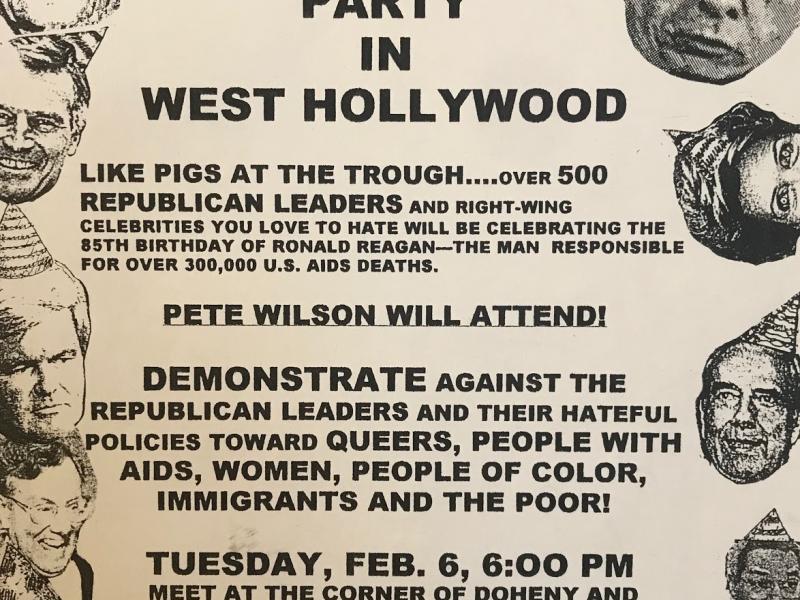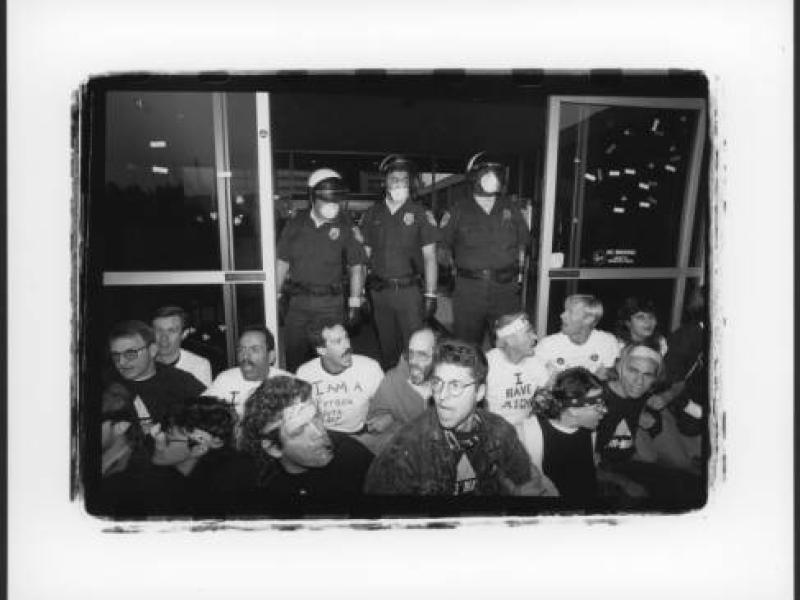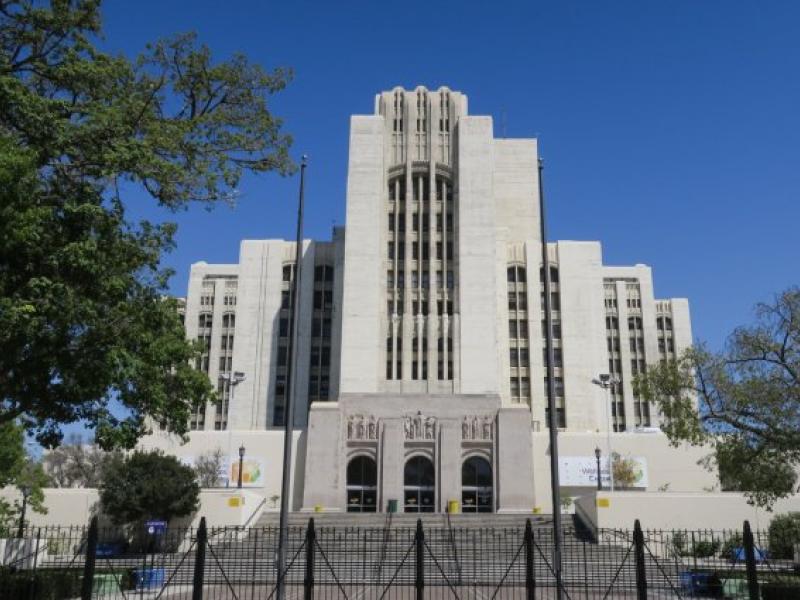Los Angeles was quick to jump into action at the time of the AIDS epidemic, responding with grassroots activism that quickly grew in size as well as structure. Plummer Park was essential to ACT UP/LA, as its location in West Hollywood and proximity to bus lines made it accessible to most anyone who wanted to be involved. Plummer Park’s Great Hall Long Hall opened its doors to ACT UP/LA’s general body (GB) meetings on Monday nights in 1987, and its clubhouse served as a meeting spot for the organization until 1996. This central location was a key component in disseminating plans for protests and providing crucial connections to other community resources. Here members gathered for discussions on AIDS visibility, planned protests to force the FDA and Federal government into action, and to surround themselves with many fighting for their own lives. The clubhouse was often packed full, with crowds spilling out into the courtyard as well. Establishing a physical location to meet, along with the opening of the ACT UP/LA chapter itself, allowed for a more cohesive movement to combat AIDS to find its stride in Los Angeles.
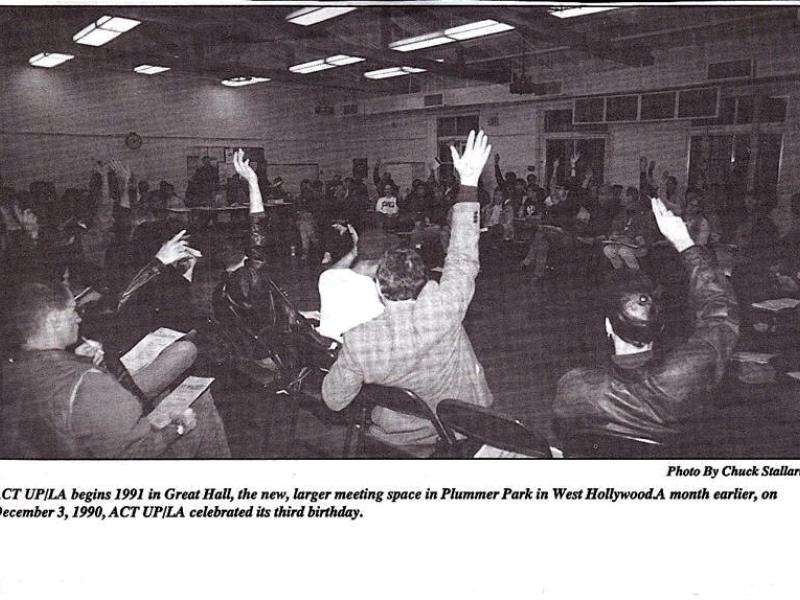
Abstract
The AIDS epidemic swept through the nation at the beginning of the 1980’s, and major cities like Los Angeles, with a large gay population, saw rates of opportunistic infections skyrocket amongst otherwise healthy men. ACT UP (AIDS Coalition To Unleash Power) Los Angeles was officially formed in 1987, and they took to the streets to passionately fight for a group that is had everything on the line. Many of their demonstrations targeted public institutions like the CDC, FDA, and in the Republican party. Inclusion at the community level lead to many of ACT UP’s successes in combating AIDS at a national scale.
Content
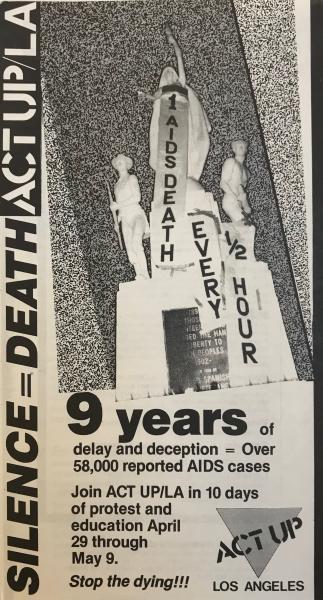
act upla flier
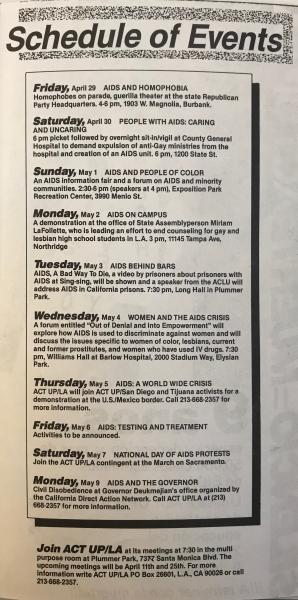
act upla flier
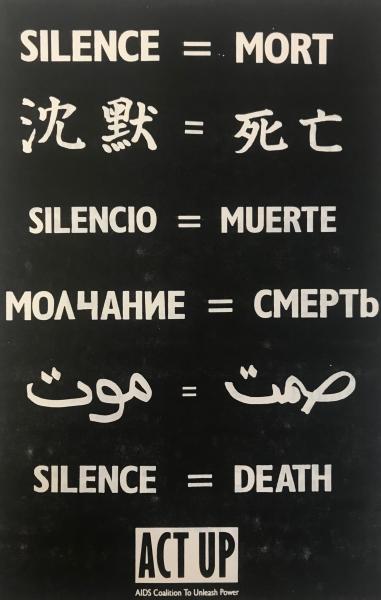
act up flier
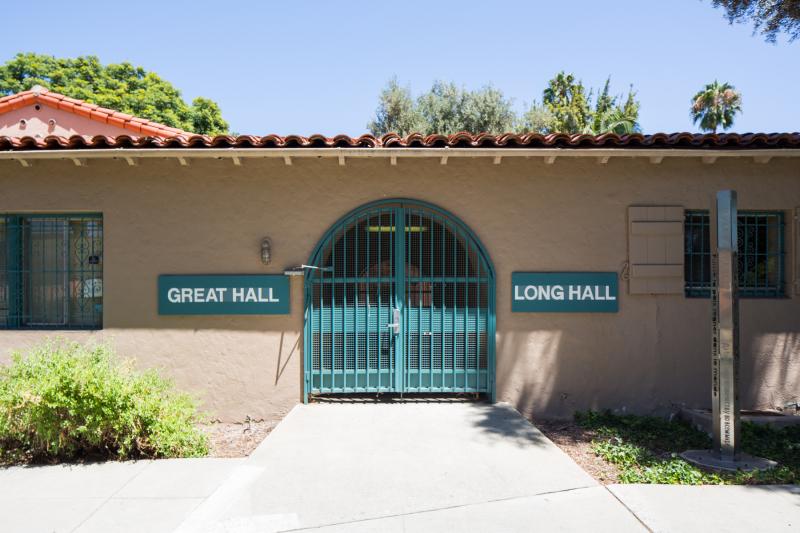
plummer parks great hall long hall
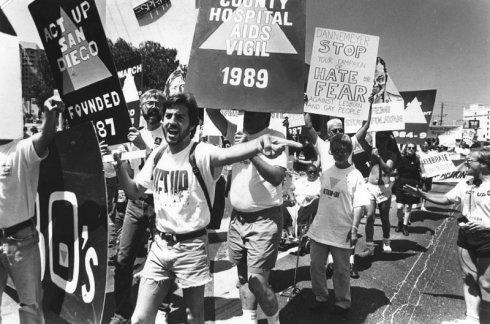
00048624 plummer park.jpg





Citations
Dominguez, Laura. “How the Remnant of a Mexican Rancho Became an LGBTQ Landmark.” KCET, 9 June 2017
Roth, Benita. The Life and Death of ACT UP/LA: Anti-AIDS Activism in Los Angeles from the 1980s to the 2000s. Cambridge University Press, 2017.
Places
